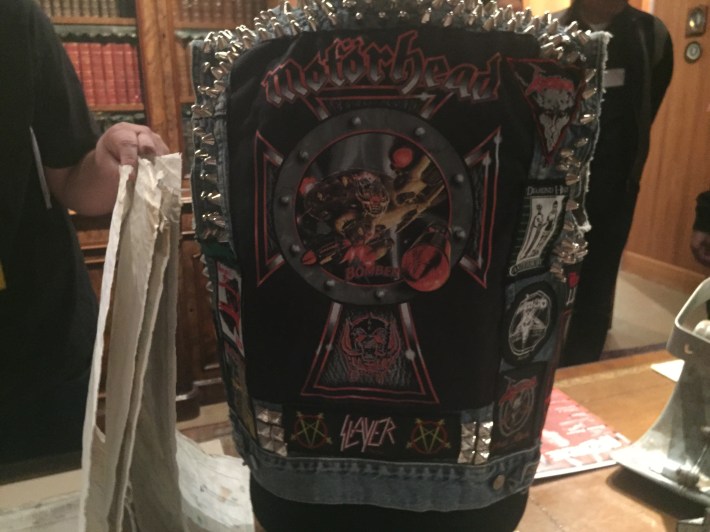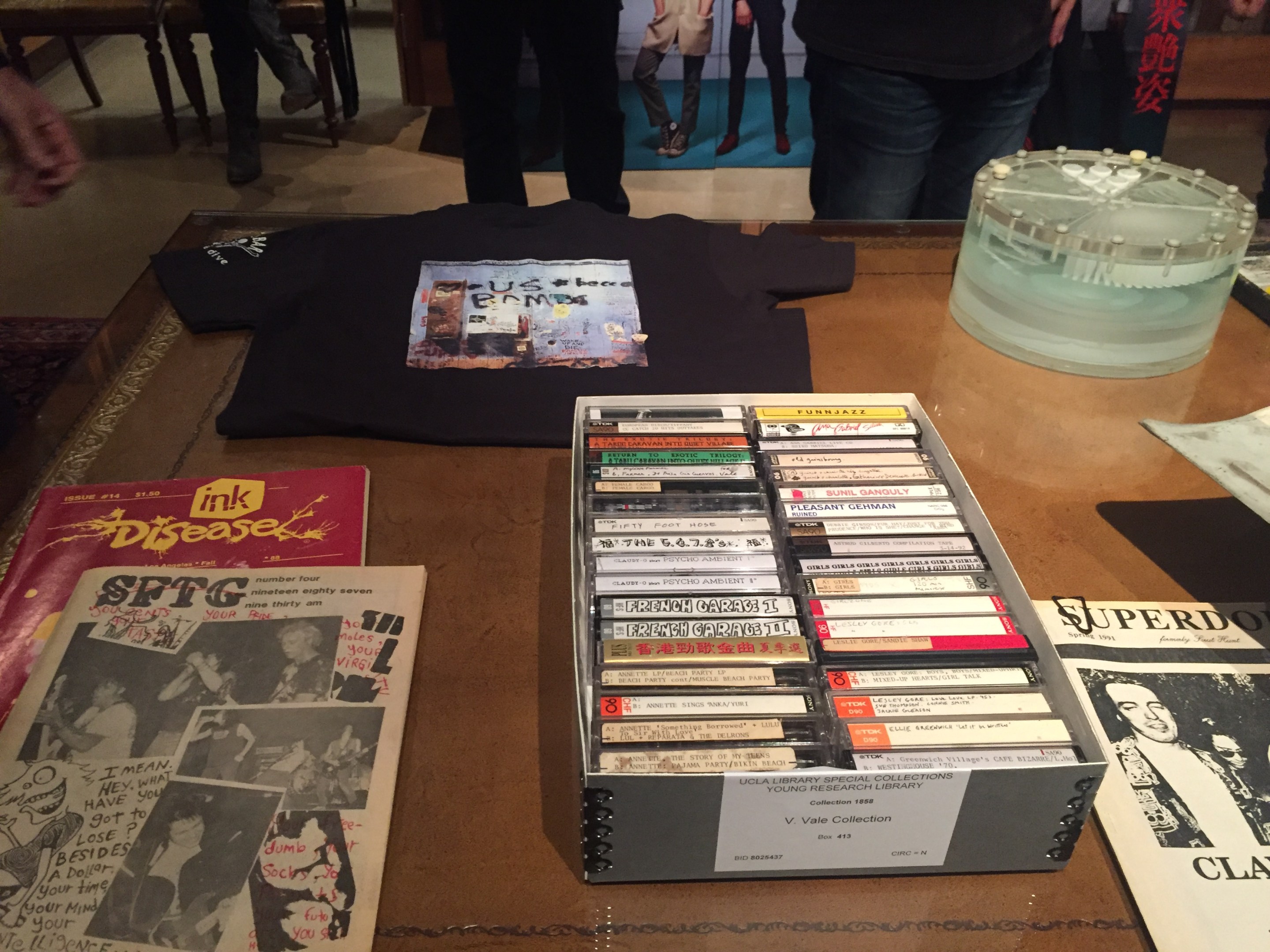Late Saturday afternoon, on the campus of UCLA, the histories of L.A. punk took varied turns as they spread out through talks in three separate spaces. In one lecture hall, Brian Kim Stefans, a poet who teaches in the school's English department, gives the lowdown on bands who emerged during Los Angeles' post-punk era, from synth-driven The Screamers to the moody, guitar-based Abecedarians.
In a library conference room, Tequila Mockingbird, founder of the pop-up Punk Museum, delves into the backstory of the influential television show New Wave Theater. A few doors down, Nikki Tucker, who co-founded the early '80s photography project Fer Youz, guides viewers through a slideshow of hardcore's infancy, complete with images of slam dancers and stage divers.
In the more than 40 years that have passed since the word "punk" came to denote a movement in rock music, the global scenes that bands like The Ramones, The Sex Pistols, and The Clash went on to inspire have evolved. The sounds changed, as did the fashion and iconography. In the U.S., it has ebbed and flowed between mainstream appeal and an underground phenomenon.
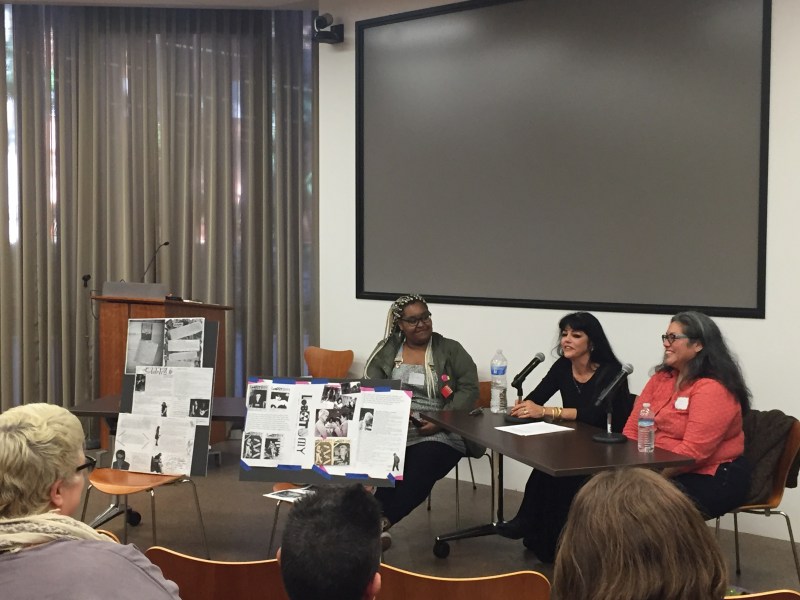
Punk isn't stagnant and its relevance has yet to wane. At "Curating Resistance: Punk As Archival Method,” presented by UCLA's Center for Musical Humanities and Herb Alpert School of Music, documenting those varied histories, as well as present-day communities, was at the core of the panel sessions. While the two-day conference included talks on artists and scenes from New York to Cuba, it's in the locally-minded presentations where the diversity of punk takes hold.
Even in a single region, there's no single definition of punk and those differences go beyond the oft-reported dividing lines of Hollywood versus Orange County or '70s versus '80s. At "Curating Resistance," what emerged isn't the story of punk of itself, but how DIY tactics and a spirit of experimentation and rebellion have and continue to empower communities.
"The idea of studying punk, of objectifying it, I can't really do it," says Jessica Schwartz, assistant professor of musicology at UCLA's Herb Alpert School of Music, who developed the conference. "I like the idea of punk as methodology or punk as an archival method or thinking critically about punk…how you can learn and use it as a method of surviving, especially when we're not given the tools."
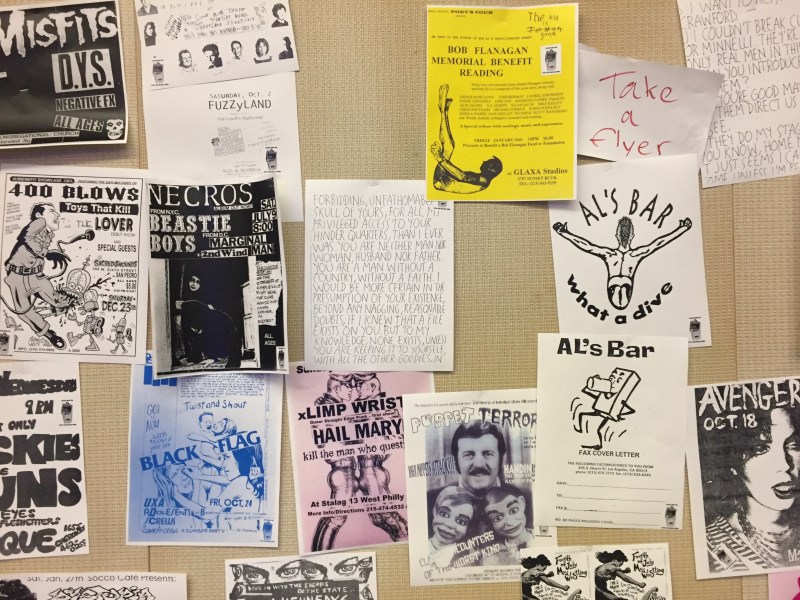
Schwartz, who is also a musician with punk roots, sees the way in which this movement amplifies the voices of marginalized people. "Punk gives people tools for creative expression," she says. That's important not only for people whose taste in music may be far from mainstream. Even within punk and its tributaries, the dominant narrative has often focused on the contributions of white, mostly straight, men. That leaves out a lot of stories, including those of some of the movement's pioneers. "Curating Resistance" took a more inclusive approach and that alone is an act of punk rock.
At 'Curating Resistance,' what emerged isn't the story of punk of itself, but how DIY tactics and a spirit of experimentation and rebellion have and continue to empower communities.
It helps to look at punk as more than simply a style of music. "I think of punk as an attitude and a way of life and I think when I was involved in the early punk scene in Los Angeles and it was not based on what you sounded like, but around a group of people that formed a community that supported each other's creativity in whatever form it took," says musician, artist and author Alice Bag, who performed at "Curating Resistance," by phone prior to the event. "It could be visual art. It could be dance. It could be music or it could be a rebellious attitude. It could be that you were challenging the world with how you dressed or who you loved or how your spoke. So many of us were just living in our own bodies and making a political statement without even being aware of it by just being ourselves."
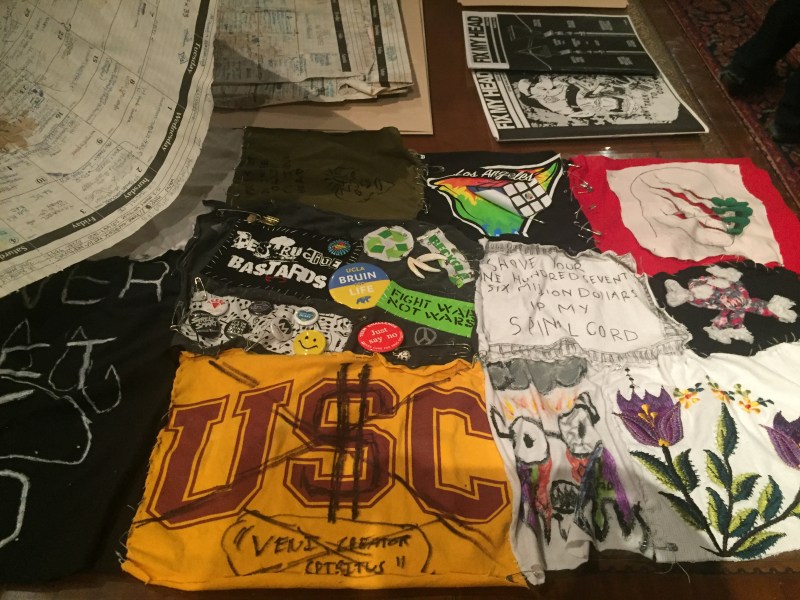
While the conference was educational in nature, there was a sense of merging the academic and the personal. The event's speakers included author Stacy Russo, whose recent book We were Going to Change the World: Interviews with Women from the 1970s and 1980s Southern California Punk Rock Scene, and Tanya Pearson from Women of Rock Oral History Project, both of whom have stressed the importance of women telling their own stories. On Friday, Pleasant Gehman and Theresa Kereakes recounted their days as young punks who documented the Hollywood scene as it unfolded in the zine Lobotomy. It's punk as a means of making yourself heard and that also might be reflective of what is happening with the presence of this counterculture movement at major institutions.
"What's happening now is that more people from diverse backgrounds are starting to get into universities to do stuff that they're passionate about," says Candace Hansen, a writer and graduate student in the musicology department who is the logistics and community organizer for the conference. Hansen grew up in Orange County and was involved in the local scene as a musician and event organizer. "Since more people have access to the university, I think that the people who are getting into these programs, into these spaces, are just trying to elevate the work that is important to them."
That includes UCLA's own Library Special Collections, which is home to a burgeoning punk archive.
"There's been a lot of pushback across our archival profession on a national scale against collecting punk for many years because it's seen as lowbrow," says Kelly Besser, the processing archivist at UCLA Special Collections. "So, this is a moment to take that power back and fill in these gaps and these silences in the archive and make room in the pit for all of us."
The Punk Archive emphasizes local history with zine collections and related ephemera. It is also the home of The American Hotel and Al's Bar Project, a collection that tells the story of the now-defunct venue through documents and memorabilia, including old calendars and financial records. Since the archive is accessible to the public, it's more than a resource for the school. It's a resource for Los Angeles, one that taps into not only the city's music legacy but also the experiences of people from across the region.
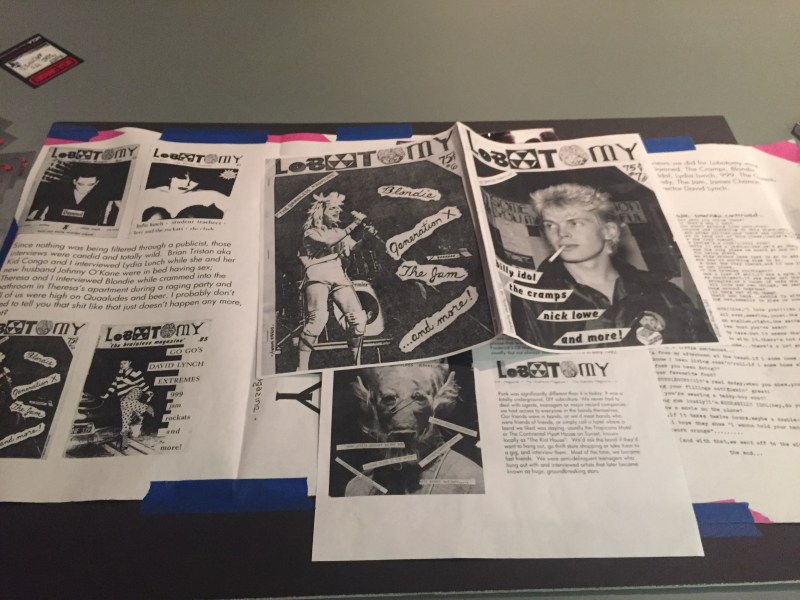
"For the city, I think it's marking a place in the archives for punks, for freaks, for queers, for punks of color from southeast Los Angeles," says Besser.
There was a t-shirt that members of the archival team wore during the event that read, "Punk's not dead, it's archived." The message was wholly poignant. Punk never died, it has manifested in a myriad of ways over decades. And, in its latest, perhaps most subversive act, punk is making inroads in an elite institution.
